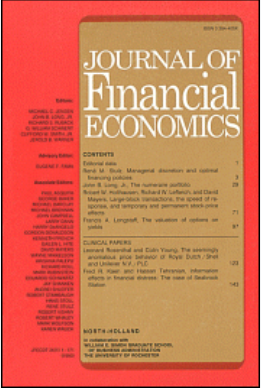两极化,目的和利益
IF 10.4
1区 经济学
Q1 BUSINESS, FINANCE
引用次数: 0
摘要
我们提出了一个模型,在这个模型中,公司竞争那些看重非金钱工作属性的员工,比如目标、可持续性、政治立场或工作条件。企业采用生产技术,使他们能够提供具有这些理想属性的不同水平的工作。当企业迎合具有极端偏好的工人时,它们的利润会更高。在竞争性分配均衡中,企业变得两极分化,不仅反映而且放大了一般人群的两极分化偏好。两极分化程度越高的行业,利润越高,平均工资越低,劳动力占增加值的比例越低。可持续投资放大了企业的两极分化。本文章由计算机程序翻译,如有差异,请以英文原文为准。
Polarization, purpose and profit
We present a model in which firms compete for workers who value nonpecuniary job attributes, such as purpose, sustainability, political stances, or working conditions. Firms adopt production technologies that enable them to offer jobs with varying levels of these desirable attributes. Firms’ profits are higher when they cater to workers with extreme preferences. In a competitive assignment equilibrium, firms become polarized and not only reflect but also amplify the polarized preferences of the general population. More polarized sectors exhibit higher profits, lower average wages, and a reduced labor share of value added. Sustainable investing amplifies firm polarization.
求助全文
通过发布文献求助,成功后即可免费获取论文全文。
去求助
来源期刊

Journal of Financial Economics
Multiple-
CiteScore
15.80
自引率
4.50%
发文量
192
审稿时长
37 days
期刊介绍:
The Journal of Financial Economics provides a specialized forum for the publication of research in the area of financial economics and the theory of the firm, placing primary emphasis on the highest quality analytical, empirical, and clinical contributions in the following major areas: capital markets, financial institutions, corporate finance, corporate governance, and the economics of organizations.
 求助内容:
求助内容: 应助结果提醒方式:
应助结果提醒方式:


